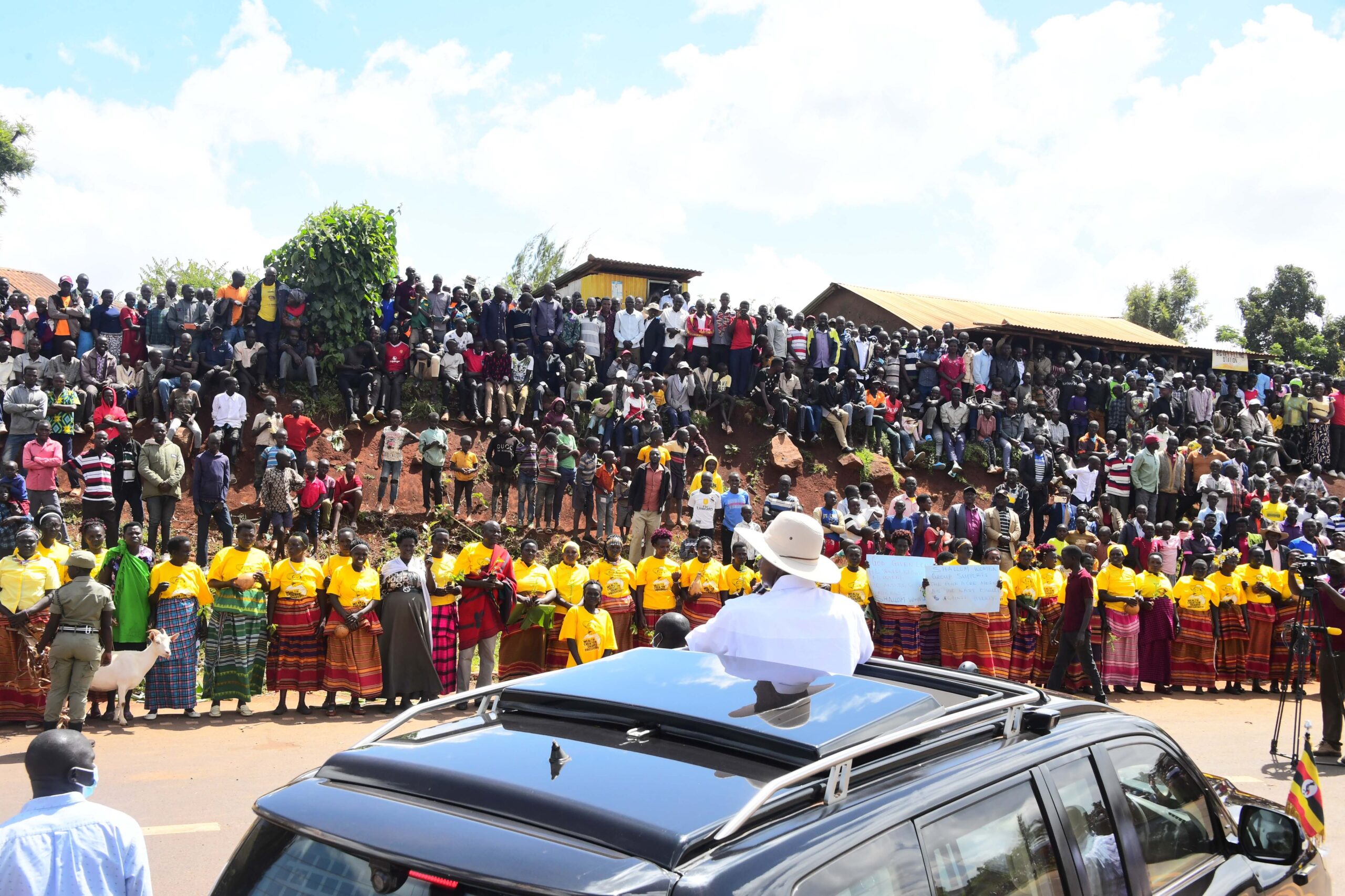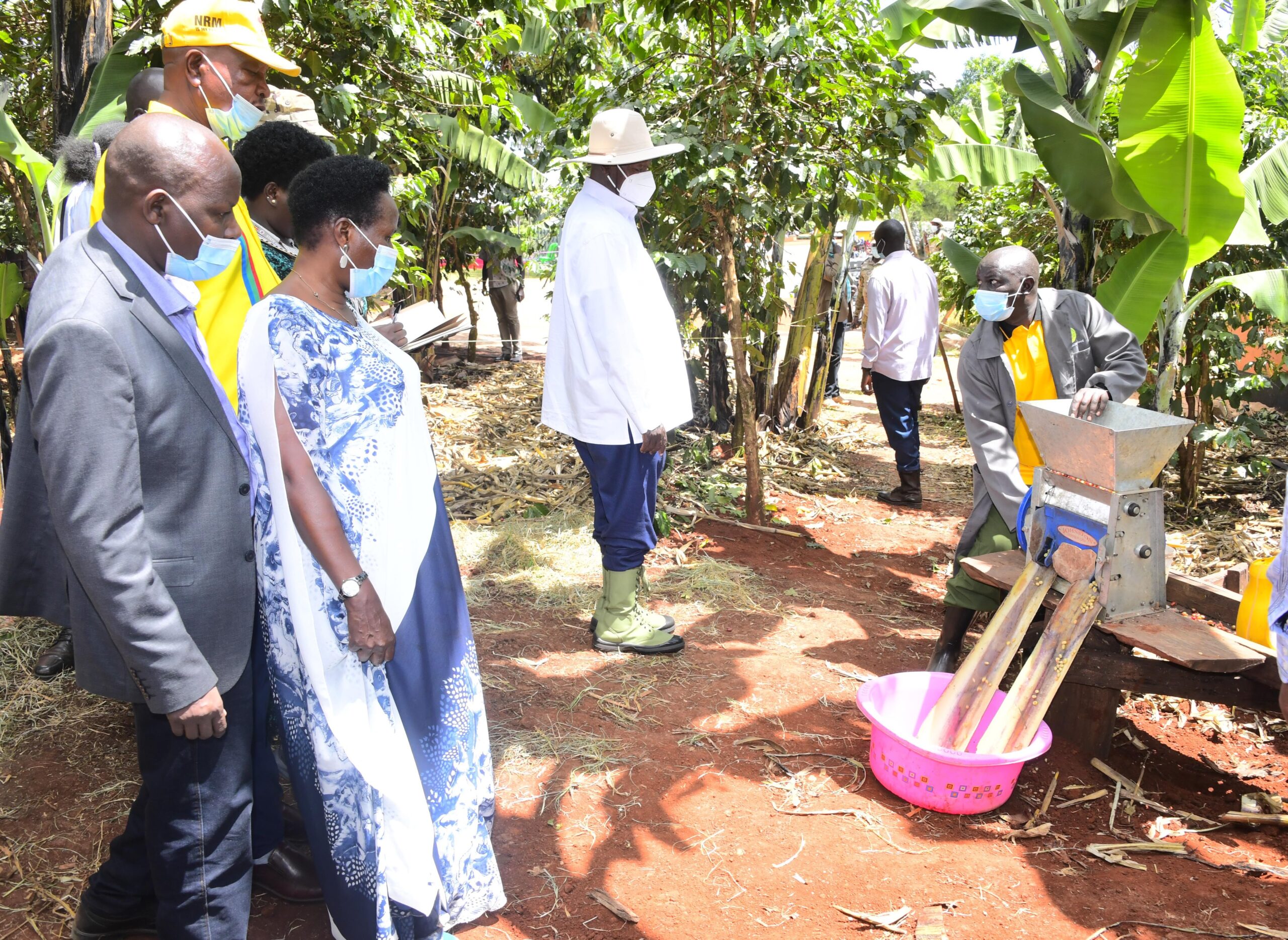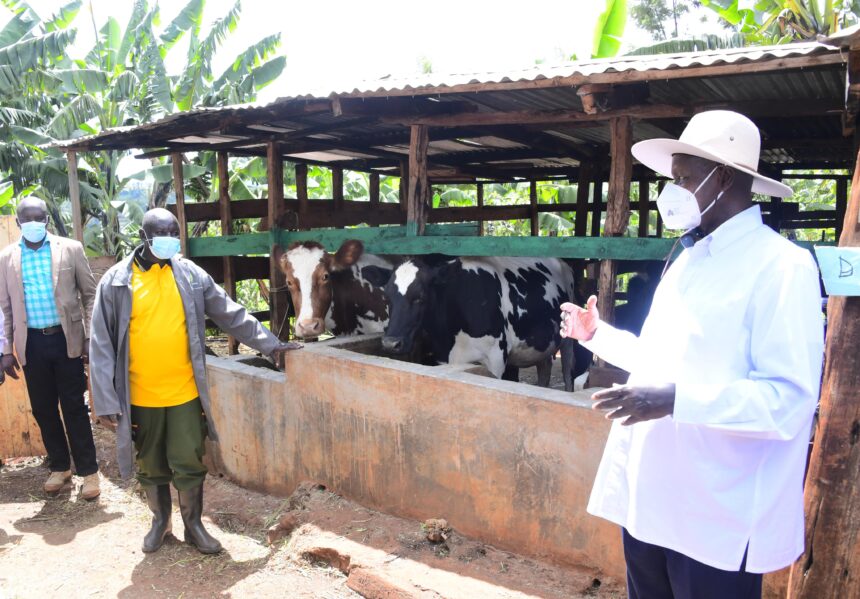President Yoweri Museveni has applauded farmers in the Sebei subregion for adopting the Four-Acre Model, a strategic approach aimed at maximizing land productivity and improving household incomes.
During his recent visit to Bukwo District, the president commended farmers for diversifying their activities on small plots of land to ensure both food security and economic sustainability.
While addressing residents at the home of Mr. Nicholas Chelimo, a model farmer in Ngeny Village, Kapkoros Parish, the president expressed his satisfaction with the region’s progress. His visit marked the beginning of a three-day wealth creation and Parish Development Model (PDM) performance assessment tour in the Sebei subregion.
“I am very glad to see people waking up. Wherever I go, I see people making progress. This is exactly where we came from,” said President Museveni. He recounted his first visit to the Sebei region in 1986, where he observed hardworking people but noted the lack of “Ekibaro” (calculation) in their farming practices.

President Museveni Praises Sebei Farmers for Embracing the Four-Acre Model
Rethinking Small-Scale Farming
The president highlighted the limitations of traditional farming practices, particularly the reliance on low-value crops like maize, which often fell short of sustaining households financially.
“Maize is a low-value crop unless grown on a large scale. Small-scale maize farming does not generate significant income,” he explained. He emphasized the need to align agricultural practices with land sizes and introduced the concept of extensive and intensive farming.
“Extensive farming is suitable for crops like maize and cotton when cultivated on a large scale. These crops yield both food and money when grown on a sufficient acreage,” he said. “However, for farmers with smaller plots, we had to design another approach—the Four-Acre Model.”
The Four-Acre Model: A Blueprint for Success
The Four-Acre Model recommends allocating land for diverse activities to optimize productivity:
- One acre for coffee: Ideal for generating steady income.
- One acre for fruits: Cold areas like Kapchorwa can support high-value crops such as apples and grapes, while warmer regions can grow mangoes, pineapples, and oranges.
- One acre for pasture: Ensuring livestock have adequate feed.
- One acre for food crops: Securing household food needs.
The model also encourages utilizing backyards for poultry farming and piggery. For farmers near wetlands, fish farming is recommended, but only at the edges to protect the ecosystem.

The Role of Irrigation and Water Conservation
President Museveni underscored the importance of irrigation in enhancing agricultural productivity.
“Irrigation is a game-changer,” he said, citing the example of Dr. Muranga, a scientist in Bushenyi District. Through irrigation, Dr. Muranga has achieved banana yields of 53 tonnes per hectare, compared to the regional average of 5.3 tonnes. In Brazil, irrigation has driven yields to an impressive 80 tonnes per hectare.
He called for better water conservation practices to support irrigation efforts.
“We need irrigation, but where will you get the water if you are wasting the wetlands? Areas like Kapchorwa and Mt. Elgon are well-positioned for irrigation expansion,” he noted.

A Living Testament to Modern Farming
At 54 years old, Mr. Nicholas Chelimo stands as a shining example of the transformative power of modern agricultural practices. A father of seven, Mr. Chelimo inherited two acres of maize from his father but has since diversified into a thriving enterprise. His farm now features zero grazing, banana farming, coffee cultivation, maize production, and local poultry farming.
“Chelimo’s success story demonstrates how even small landholdings can be turned into a source of wealth and sustainability,” the president remarked.
The Path Forward
President Museveni’s visit to Bukwo District reflects the government’s commitment to promoting innovative farming practices through the Parish Development Model and other initiatives. By adopting strategies like the Four-Acre Model, farmers in Uganda can enhance their productivity, improve livelihoods, and contribute to national food security and economic growth.








